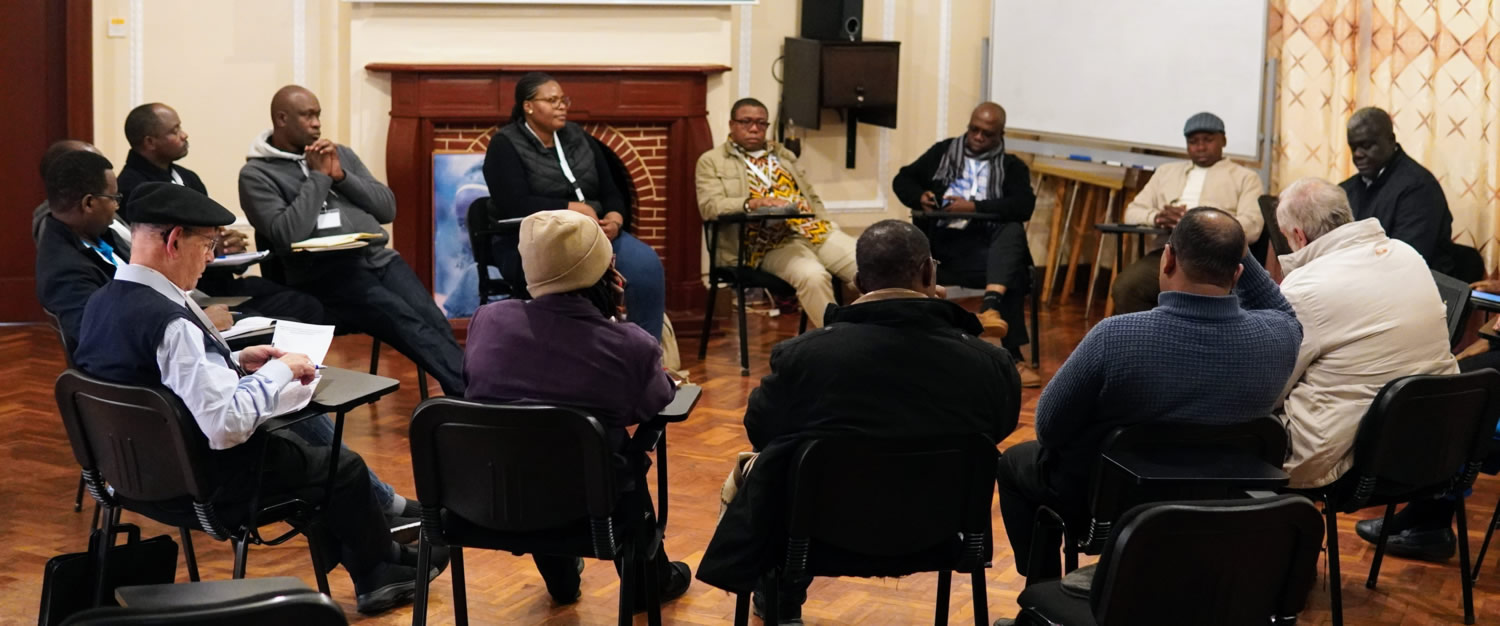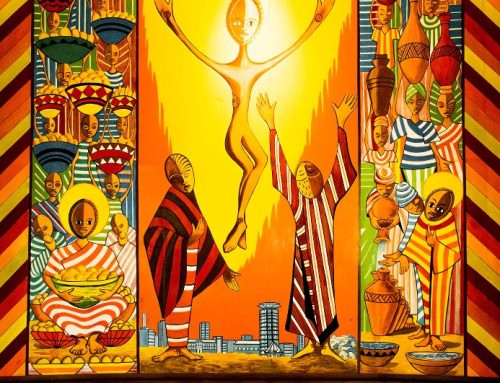Between July 6 and 10, 2025, Jesuits and collaborators from across Africa and beyond converged at Mwangaza Jesuit Spirituality Centre in Nairobi for the inaugural Symposium on the Spiritual Exercises from an African Context. Organized by the Jesuit Historical Institute in Africa (JHIA) in collaboration with the Jesuit Conference of Africa and Madagascar (JCAM), this historic gathering brought together over 50 spiritual directors, scholars, retreat givers, and formators who have engaged deeply with the Spiritual Exercises of St. Ignatius of Loyola within African contexts.
The symposium, described by many participants as long overdue, served as a unique space for critical reflection, shared experience, and spiritual discernment, all grounded in the lived realities of African people. Its guiding question: How do the Spiritual Exercises speak to African hearts and cultures? And how might they be further adapted, without compromising their spiritual core, to become more deeply rooted in African soil?
The symposium opened with warm words of welcome from Fr. Terry Charlton, SJ, Director of Mwangaza Jesuit Spirituality Centre, and Fr. Jose Minaku, SJ, JCAM President. Both emphasized the importance of this moment as a turning point in African Jesuit reflection on the Exercises, not as foreign imports, but as transformative tools that can engage African cultures, psychologies, languages, and symbols.
Each day of the symposium was structured around thematic panels and keynote sessions exploring how the Spiritual Exercises are lived, adapted, and preached in various African settings. Fr. Agbonkhianmeghe Orobator, SJ, Dean of the Jesuit School of Theology at Santa Clara University, delivered the opening keynote titled “The Spiritual Exercises in the African Context: From Translation to Contextualization via Vernacularization.” Fr. James Hanvey, SJ, Secretary for the Service of Faith to the General Curia and Consultor to Fr. General Arturo Sosa, SJ, delivered the closing keynote titled “Quo Vadis?”: The Gift of the Spiritual Exercises to the Future of an African Church and Cultures, in which he challenged participants to reimagine the Exercises not merely as a method of personal discernment but as a movement of the Spirit within and beyond ecclesial borders.
The symposium was not a space for uniformity but for diversity of experience. Presenters included Jesuits from all provinces in Africa, along with collaborators from lay Ignatian movements such as the Christian Life Community (CLC). Their shared testimonies revealed a mosaic of practice: from retreats in vernacular to online Lenten meditations, from family-centered adaptations to the use of dreams and memory in spiritual direction.
One of the recurring themes of the symposium was the challenge and necessity of inculturation. Several presenters underscored the difficulties of translating not only the language but the very spiritual grammar of the Exercises into African cultural categories. How, for instance, does one speak of “sin” or “consolation” in Kiswahili, Dholuo, or Kikongo? What local metaphors, gestures, and rituals can express discernment, detachment, and election?
Fr. Festo Mkenda, SJ, Academic Director of the Jesuit Archives in Rome (ARSI), explored these tensions in his presentation on language and historical memory, noting how early African Christians found ways to embody Gospel truths in indigenous categories, and how the Exercises must follow a similar path today.
Dr. Wairimu Beatrice Churu, a scholar-practitioner of Ignatian spirituality and psycho-social healing, shared insights from her work with women, youth, and trauma survivors, drawing links between psychological integration, African family systems, and the Ignatian dynamic of inner freedom.

Presenters Puleng, Chuks, and Catherine during the Session 4 Q&A: “Forming the Person (Subject) in the Spiritual Exercises.”
Catherine Waiyaki, former president of CLC Kenya, reflected on her years of accompanying laypeople, especially women and families, through the Exercises. Her talk, “Ignatian Spirituality and the African Family”, stressed the importance of relational and communal approaches to discernment, a theme echoed in small group discussions throughout the week.
Another powerful thread was the role of dreams, storytelling, and the imagination in African spirituality. While often undervalued in Western frameworks, these elements were reclaimed as vital portals into prayer, self-awareness, and divine encounter. Several participants spoke of experiences where the Exercises took on new life when offered in ways that engaged the symbolic world of African peoples, through proverbs, drums, dance, silence, and song.
This emphasis came through vividly in Fr. Marcel Uwineza’s reflections on reconciliation and memory in post-genocide Rwanda, as well as in conversations around ancestral memory, collective trauma, and the healing power of communal retreats.
The symposium did not shy away from naming difficulties. Participants discussed the scarcity of trained retreat directors, inadequate formation materials in local languages, and the unequal access to spiritual accompaniment across gender and class lines. Several speakers also called for greater collaboration between Jesuits and lay movements, the promotion of Ignatian retreats in diocesan settings, and the inclusion of African women theologians and spiritual directors in ongoing formation programs.
Despite the weight of the issues discussed, the overall tone of the symposium was joyful, prayerful, and forward-looking. The liturgies, each rooted in a different regional spirituality, added depth and colour to the daily rhythms. Small group sharing sessions, breakout focus groups, and evening socials helped foster a sense of mutual trust and solidarity.
A midweek cultural evening, complete with traditional songs and storytelling, reminded participants that spirituality and culture need not be in tension; they can dance together.
In his closing remarks, Fr. Orobator reminded participants that the goal was not to “Africanize the Exercises,” but rather to discern where and how the Exercises are already speaking African languages and healing African hearts. He invited all present to continue walking this path, not as isolated practitioners, but as a community in spiritual conversation, listening for where the Spirit leads.
Full recordings of the keynote addresses and panel sessions are available on the JHIA YouTube channel | Download the full PDF newsletter | SpEx Program
By The JHIA Editorial Team



